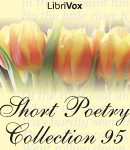
Short Poetry Collection 095
This is a collection of poems read by LibriVox volunteers for the months of February and March 2011. [chương_files]
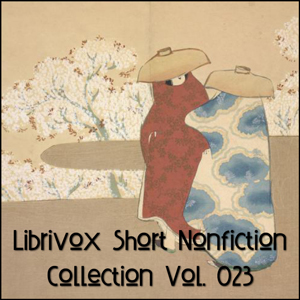
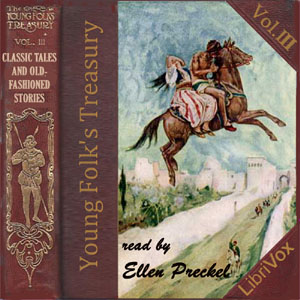
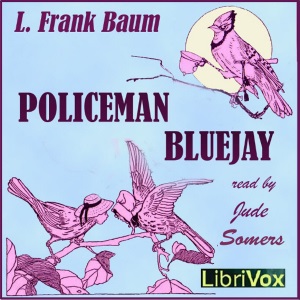
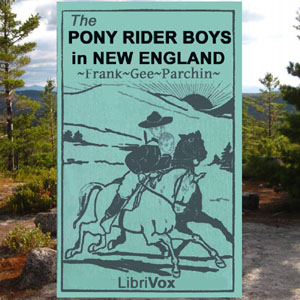
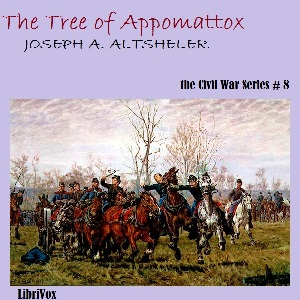

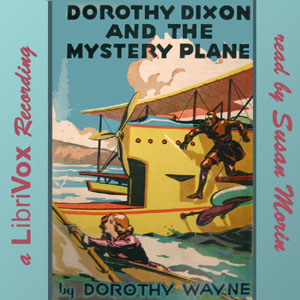
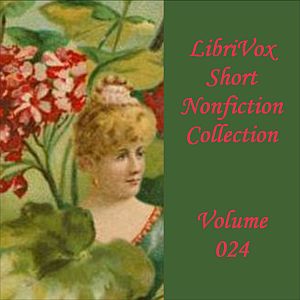


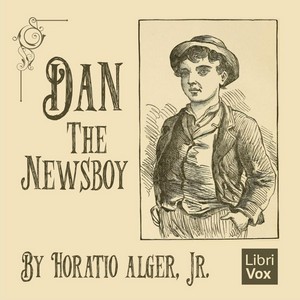
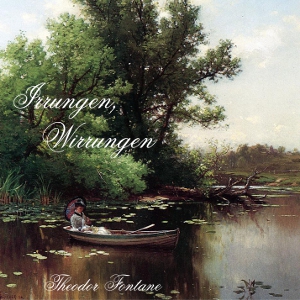
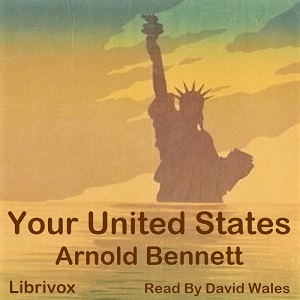
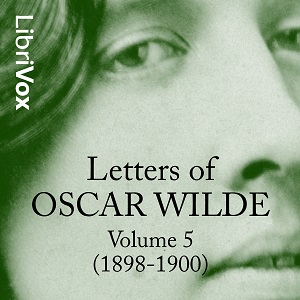
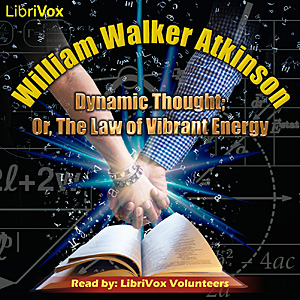
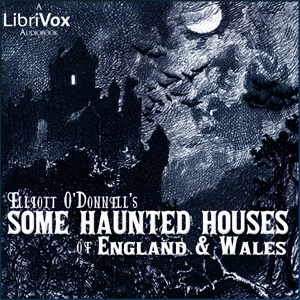
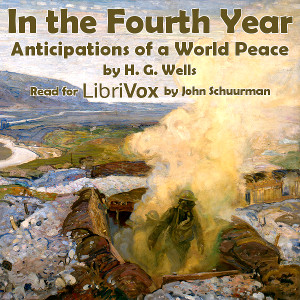
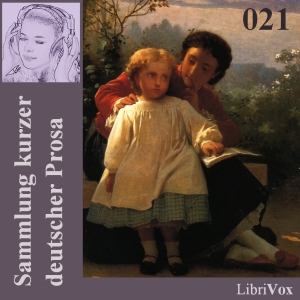
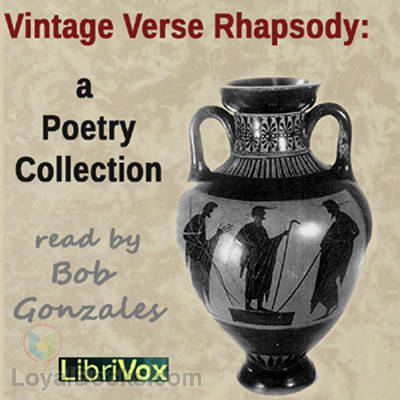

This is a collection of poems read by LibriVox volunteers for the months of February and March 2011. [chương_files]
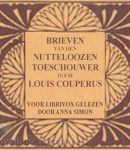
Deze serie columns in de vorm van brieven schreef Couperus voor het dagblad Het Vaderland, vanuit Munchen en later vanuit Florence. Ze verschenen voor het eerst in druk in Het Vaderland van oktober tot december 1914. Vanaf 1912 bracht Louis Couperus de zomers door in een pension aan de Wittelsbacherplatz in Munchen. Daar was hij dan ook toen op 1 augustus 1914 Duitsland de oorlog verklaarde aan Rusland. In deze ‘brieven’ beschrijft hij zijn reactie op dit nieuws en het nieuws van de eerste dagen en weken van de Eerste Wereldoorlog. In het begin spreekt er uit de tekst bijna een fascinatie voor de oorlog. Voor het schrijven van zijn historische romans had Couperus zich vaak verdiept in de geschiedenis – nu krijgt hij het gevoel zelf deel uit te maken van de geschiedenis. Hij verslindt alle kranten die hij te pakken kan krijgen, leest alle openbare telegrammen met oorlogsnieuws en houdt de ontwikkelingen bij met vlaggetjes op een oorlogskaart. “Ik wil mijn eigen tijd kennen”. Maar al snel komt de twijfel, het besef dat hij nooit een objectieve beschrijving, nooit de hele waarheid, te weten zal komen van de gebeurtenissen om hem heen. Zijn leven en denken raakt verlamd, hij komt nergens meer toe. Uiteindelijk probeert hij “de Wereldbrand” de rug toe te draaien. English: A series of newspaper columns in Dutch, written by well-known Dutch author Louis Couperus in 1914, during the first weeks of World War I. He describes his reflections on the current events. […]
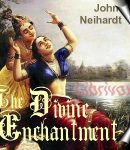
When the princess Devanaguy falls into a deep trance-like sleep, she is visited by the god Vishnu: who causes her to fall pregnant with his holy child, Christna. Devanaguy’s sleep is prolonged supernaturally by Vishnu: allowing the god to relate to her his divine secrets through a series of ecstatic visions. Among the mysteries revealed to Devanaguy, she is shown how the gods will shortly powerfully intervene directly in human affairs. When the princess finally re-awakens: she is awestruck by her experiences, and bursts into a spontaneous rhapsody of praise. Throughout her rapturous intercourse with Vishnu, Devanaguy boldly continues to desire answers to mankind’s profoundest questionings : – is it possible for mere mortals to comprehend the divine wisdom of the gods? – can be it really be true that divine beings care enough for mankind to want to intervene in human affairs: to do them good? (Introduction by Godsend) [chương_files]
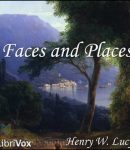
Faces and Places is a collection of articles on nineteenth century travel, events and personalities by the British journalist Henry Lucy, who wrote for the Daily News, a London newspaper. His open letter To Those About to Become Journalists rings as true today as when it was written. The first article, “Fred” Burnaby, includes a lively account of a balloon trip, while Night and Day on the Cars in Canada and Easter on Les Avants relate Lucy’s experiences of rail travel at that time. Other travel tales (A Night on a Mountain, Mosquitoes and Monaco, and Oysters and Arcachon) provide an insight into the Victorian Englishman’s attitude to Europe. Three of the pieces, With Peggotty and Ham, A Cinque Port and Christmas Eve at Watts’s, concern the county of Kent, where Lucy had a country house. Christmas Eve at Watts’s contains an interesting exposé of Dickens’ short story The Seven Poor Travellers. Other articles are of historical interest: A Wreck in the North Sea is an account of the wreck of the ship “Deutschland” in 1875; A Historic Crowd describes the massive popular interest in the 1871 trial of the Tichborne Claimant; The Battle of Merthyr contains an eye-witness account of the Merthyr Riots of 1831; The Prince of Wales paints a portrait of the future King Edward VII. Lucy, who also wrote as “Toby, M.P.” for the satirical magazine Punch, loved to poke gentle fun, particularly at the establishment, and this is especially evident in A Peep at an […]
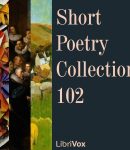
This is a collection of poems read by LibriVox volunteers for November 2011. [chương_files]
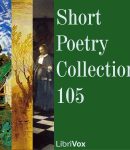
This is a collection of poems read by LibriVox volunteers for February 2012. [chương_files]
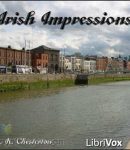
“For the Irish Question has never been discussed in England. Men have discussed Home Rule; but those who advocated it most warmly, and as I think wisely, did not even know what the Irish meant by Home. Men have talked about Unionism; but they have never even dared to propose Union. A Unionist ought to mean a man who is not even conscious of the boundary of the two countries; who can walk across the frontier of fairyland, and not even notice the walking haystack. As a fact, the Unionist always shoots at the haystack; though he never hits it. But the limitation is not limited to Unionists; as I have already said, the English Radicals have been quite as incapable of going to the root of the matter. Half the case for Home Rule was that Ireland could not be trusted to the English Home Rulers. They also, to recur to the parable, have been unable to take the talking cow by the horns; for I need hardly say that the talking cow is an Irish bull. What has been the matter with their Irish politics was simply that they were English politics. They discussed the Irish Question; but they never seriously contemplated the Irish Answer.” (quotation from Gilbert Keith Chesterton) [chương_files]
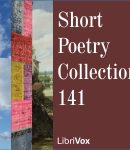
This is a collection of 27 poems read by LibriVox volunteers for February 2015. [chương_files]
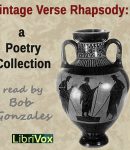
A collection of poetry selected and performed by Bob Gonzalez, rhapsode. Rhapsodes of Ancient Greece were “song-stitchers,” performing selections from the epics of Homer and Hesiod. The contemporary rhapsode performs the classical poetry of his or her language, culture, and tradition. Any particular collection and arrangement of poems for performance I term a “rhapsody.” In general terms, a rhapsody is an ecstatic expression of feeling and enthusiasm. In music, a rhapsody is an instrumental composition irregular in form and suggestive of improvisation. The poems in this rhapsody comprise a number of poems that I have performed in public and known for much of my life as well as several recent additions to my repertory. They are arranged in chronological order from the 16th century to the early 20th century. Some of the poets represented here are Edmund Spenser, William Shakespeare, John Donne, John Milton, Alexander Pope, William Blake, William Wordsworth, John Keats, Alfred Tennyson, Walt Whitman, Emily Dickinson, Lewis Carroll, and Robert Frost. (Summary by Bob Gonzalez) [chương_files]

The Excursion: Being a portion of The Recluse, a Poem is a long poem by Romantic poet William Wordsworth and was first published in 1814. It was intended to be the second part of The Recluse, an unfinished larger work that was also meant to include The Prelude, Wordsworth’s other long poem, which was eventually published posthumously. The exact dates of its composition are unknown, but the first manuscript is generally dated as either September 1806 or December 1809. (Introduction by Wikipedia) [chương_files]
Copyright © 2024 | FreeAudible